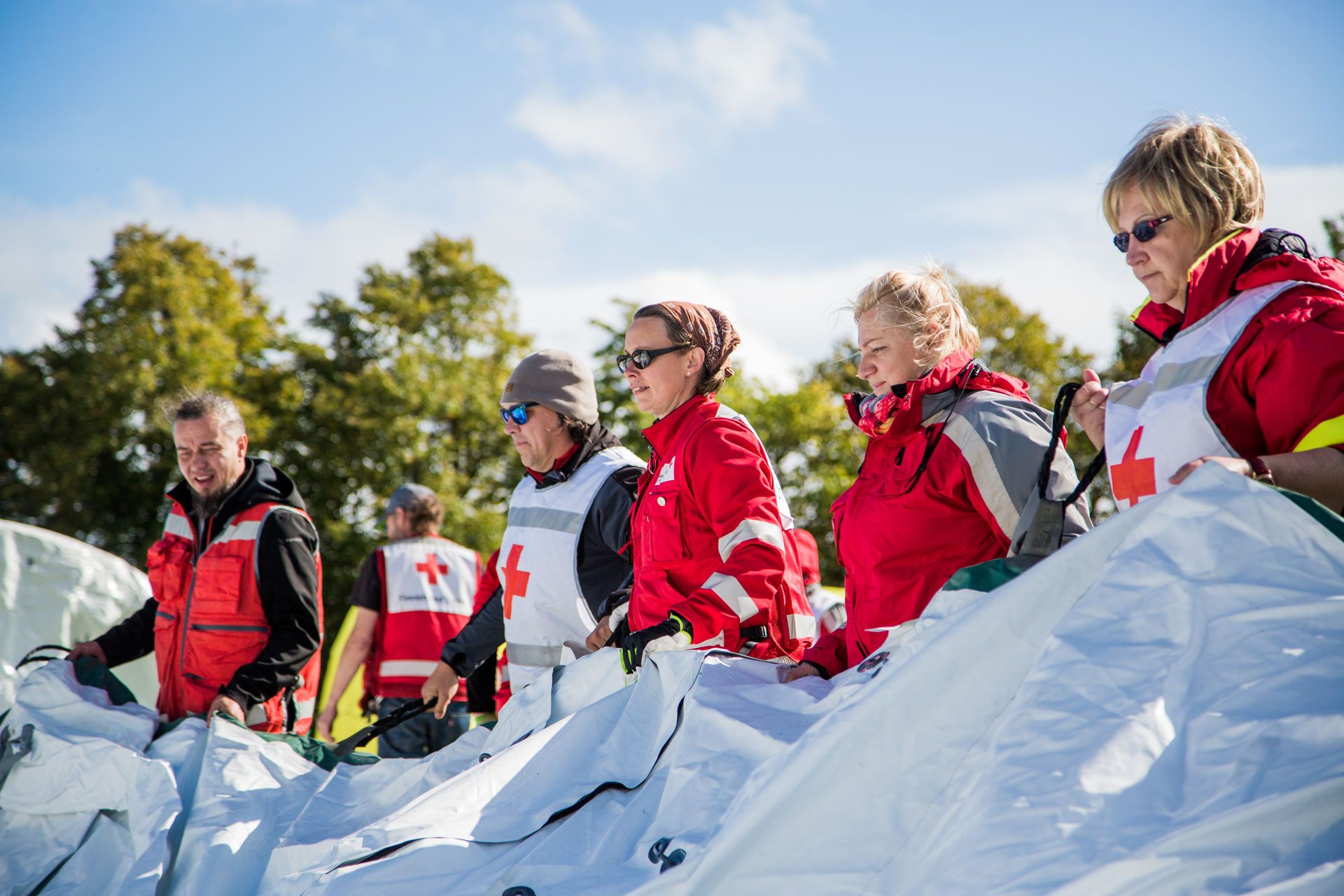Increasing preparedness in the Baltic Sea Region
28 September 2019 marks 25 years since the shipwreck of the MS Estonia took the lives of 852 people. The disaster marked a turning point in the Red Cross’ approach to psychosocial support and was a catalyst for enhancing cooperation between the National Red Cross Societies around the Baltic Sea.
The MS Estonia ferry was on its way from Tallinn to Stockholm with 989 people on board, when the visor in the ship’s bow door opened and water started to flood the vehicle deck. The ship sank fast, and a strong autumn storm complicated the rescue efforts. Altogether, 137 people survived the worst maritime accident of the Baltic Sea. Most of the victims were Swedish and Estonian, but also Finnish. When news about the accident reached Estonia and Sweden, confused relatives filled the ferry terminals in Tallinn and Stockholm.
Coping with a disaster of this scale was a huge challenge for the Estonian Red Cross in terms of preparedness and resources. Support from colleagues at the Finnish Red Cross and the Swedish Red Cross was thus critical to addressing the needs of survivors and their families.
The Finnish Red Cross helped with logistics, coordination and services. Its national preparedness group of psychologists – which had been established just one year before – was alerted at 5.30 in the morning of 28 September. A team of 45 psychologists assisted the survivors, as well as the staff and volunteers of the Estonian Red Cross involved in the rescue operation. Victims had a chance to share their experiences and contact their relatives. They also received support in organising their journeys back home.

“The Finnish Red Cross assisted authorities by establishing places where the victims could be transferred after having been rescued, where they received dry clothes, hygiene articles, food, as well as a place to sleep”, shares the Head of National Preparedness at the Finnish Red Cross, Leena Kämäräinen, who participated in the operation. While the numbers of people in need was a challenge, prior agreements established while drafting disaster preparedness plans facilitated the aid work.
On the other shore of the Baltic Sea, the Swedish Red Cross provided psychosocial support to the relatives of the victims and employees of the ferries that participated in the rescue operation.
“A number of Swedish Red Cross officers decided to join the crisis center situated at the ferry terminal”, remembers Jonas Prawitz from the Swedish Red Cross. “The main learning from the disaster was that we ought to have a role in national disaster preparedness. Ever since, the Swedish Red Cross has been building its preparedness skills and developing its role in the national system”.
Immediately after the disaster, the Estonian Red Cross launched its tracing service. “Estonian Red Cross volunteers transmitted the data received from the Finnish Red Cross and the Swedish Red Cross to the families of passengers”, says Estonian Red Cross Tracing Officer, Sirje Eller. Fundraising to support Estonian survivors and the families who has lost loved ones was also carried out in Finland and Sweden.
The operation was the first time that the Estonian Red Cross cooperated with Red Cross Societies in other countries in the field of disaster response. It clearly demonstrated the urgent need for joint training systems and a common understanding of emergency preparedness and response action. The Baltic Sea region covers a significant area of northern Europe, representing nearly a fifth of the EU population. It shares common features and challenges and preparedness measures have continued to grow in importance across the region in recent years.
Among others, the BALTPREP Consortium project aims to enable more effective and timely responses to major accidents and disasters in the Baltic region. Funded by the European Union Civil Protection Mechanism (UCPM), the project brings together Red Cross Societies from seven countries: Finland, Denmark, Germany, Estonia, Latvia, Lithuania and Poland. The Swedish Red Cross and the Russian Red Cross also participate in project activities.
“Participating countries will benefit from a better understanding of existing response capacities and assets that are available within the region”, highlights BALTPREP project coordinator at the Finnish Red Cross, Maria Katajisto. “More staff and volunteers will be trained, and a Regional Preparedness Plan for the Baltic Sea Region will be developed”, she adds.
For media inquiries, please contact Eva Oyón on: eva.oyon@redcross.eu or +32 2 235 09 22

